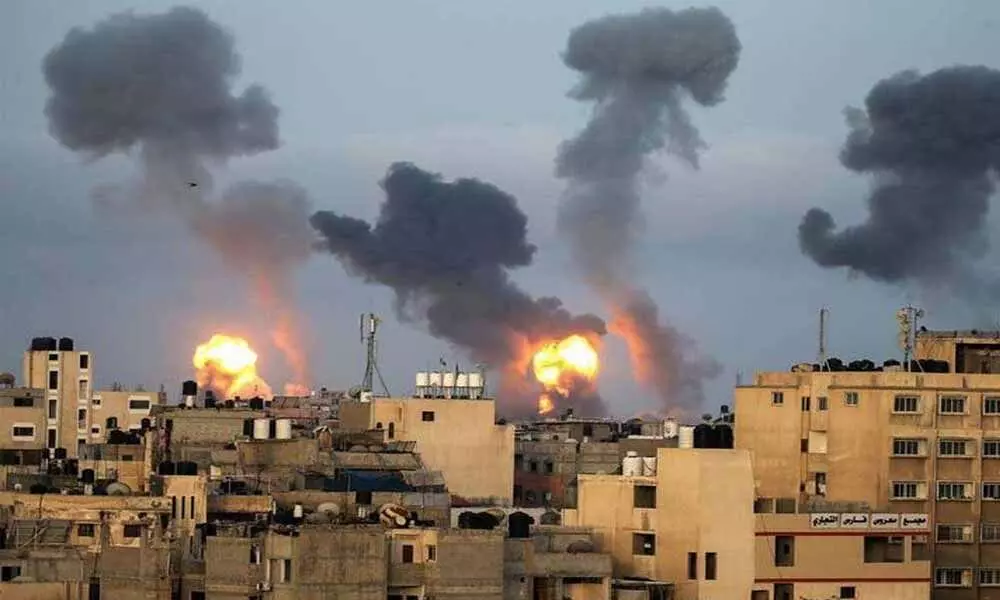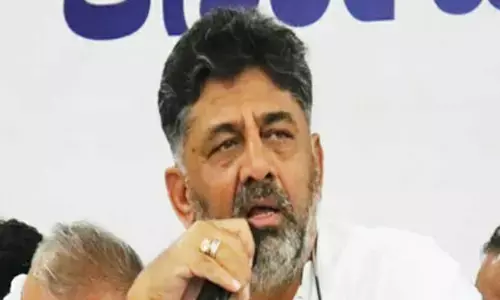A feud which has taken a breather

A feud which has taken a breather
A ceasefire between Israel and the Palestinian militant group Hamas has come into effect bringing down the curtains on a conflagration that was threatening to blow out into an all-out war that would have inflicted a great human tragedy on the region.
A ceasefire between Israel and the Palestinian militant group Hamas has come into effect bringing down the curtains on a conflagration that was threatening to blow out into an all-out war that would have inflicted a great human tragedy on the region. The ceasefire began early on May 21, bringing to an end 11 days of bombardment in which more than 240 people have died, most of them in Gaza. Palestinians poured onto the streets of Gaza soon after the truce began, while a Hamas official warned its hands "are on the trigger". Both Israel and Hamas have claimed victory in the conflict.
Fighting began in Gaza on May 10 after weeks of rising Israeli-Palestinian tension in East Jerusalem that culminated in clashes at a holy site revered by both Muslims and Jews. Hamas began firing rockets after warning Israel to withdraw from the site, triggering retaliatory air strikes. At least 232 people, including more than 100 women and children, have been killed in Gaza, according to its Hamas-controlled health ministry. Israel has said at least 150 militants are among those killed in Gaza. In Israel 12 people, including two children, have been killed, its medical service says.
The Israeli Political Security Cabinet said it had "unanimously accepted the recommendation" for a ceasefire. "The political echelon emphasises that the reality on the ground will determine the continuation of the campaign," it added. Israeli Defence Minister Benny Gantz said on Twitter that the Gaza offensive had yielded "unprecedented military gains". A Hamas official told the Associated Press that the ceasefire announced by Israel amounts to a "victory" for the Palestinian people and a defeat for Israeli Prime Minister Benjamin Netanyahu. A perfect encore, it is.
After all, both the sides knew why they escalated the situation. Both the parties to the conflict know full well the irrationality of it. They also knew it would certainly lead to blood on both the hands. Yet, the political outcomes of the same were important to them. US President Joe Biden said that the ceasefire brought "genuine opportunity" for progress. On May 20 more than 100 Israeli air strikes targeted Hamas infrastructure in the north of Gaza. Hamas retaliated with rocket fire. Past cease-fires between Israel and Hamas have often fallen apart, including in 2014, when truces collapsed at least twice during a seven-week war.
This peace, like all peace in the never-ending Israel-Palestine conflict, is fragile. Hamas and Israel have been engaged in some form of conflict since the Palestinian group was founded in the 1980s. Even if the fighting pauses, its underlying causes remain: the battle over land rights in Jerusalem and the West Bank, religious tensions in the Old City of Jerusalem and the absence of a peace process to resolve the conflict. Gaza remains under a punishing blockade by Israel and Egypt. All said and done, Palestinians have not gained anything except losing out more lives. It also led to days of violent attacks within Israel by Arab and Jewish mobs, and highlighted decades of frustration among Arab citizens of Israel who account for about 20 percent of the population and face frequent discrimination. This at best is the calm before the storm.









